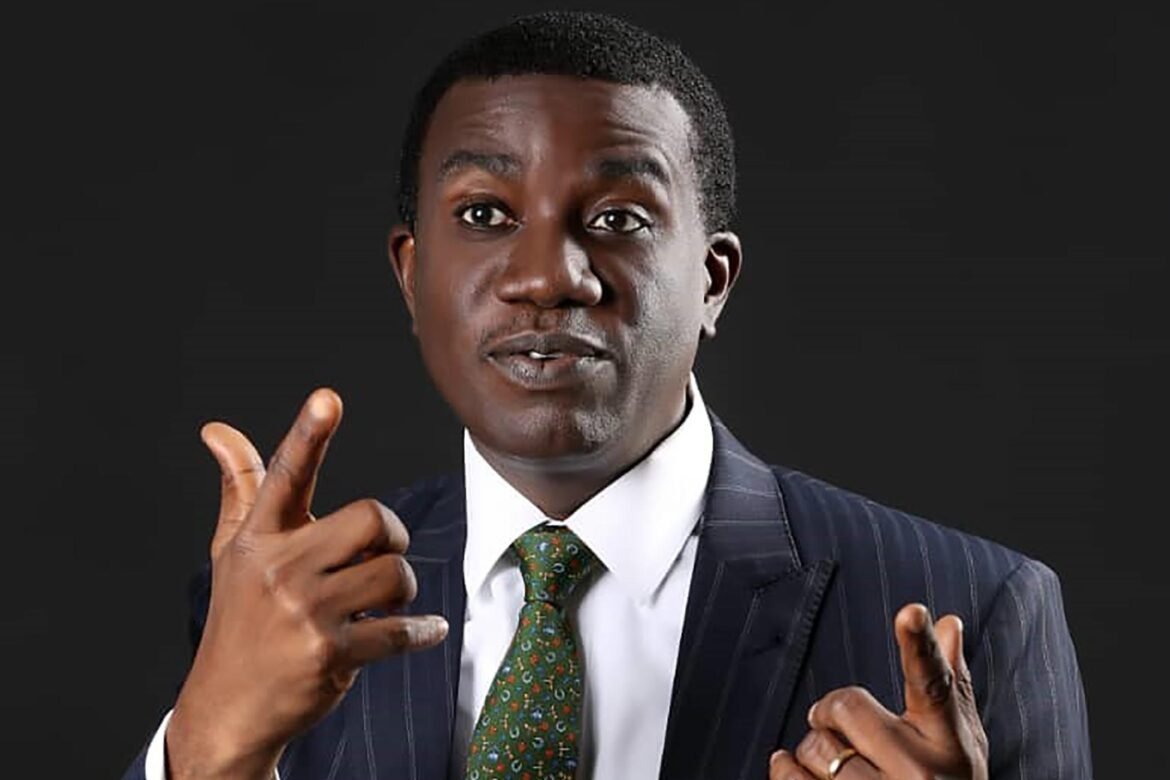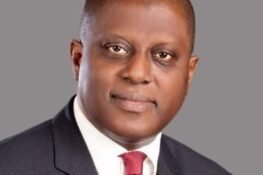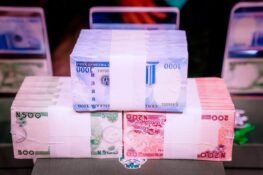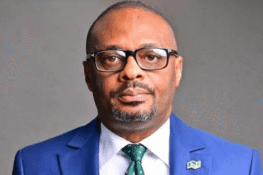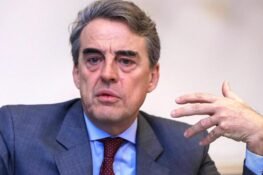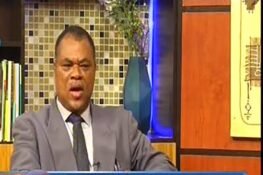You have spent decades working in commercial banks and today you find yourself heading a development bank. What has that transition been like for you?
It has been interesting coming from strictly commercial focus of profitability to impacting lives through providing access to credit for MSMEs which results in job creation, empowerment, economic growth and diversification.
Since its creation, what impact has the bank had on the plans to diversify the economy?
DBN is a Wholesale Development Bank with three specific mandates:
* Increase access to finance for MSMEs by lending to Participating Financial Institutions (Commercial Banks, Micro Finance Banks and other DFIs) for on-lending to this segment.
* Provide Capacity Building for Participating Financial Institutions to enhance their ability and willingness to lend to the MSME segment.
* Provide Partial Credit Guarantees for Participating Financial Institutions to encourage them to take the risk of lending to MSMEs.
Would you agree that development banks in Nigeria are failing in their mandate?
The concept of development finance institutions is not a new phenomenon. They have been used all over the world as instruments of economic growth and infrastructural development.
What makes development financial institutions (DFIs) succeed or fail is the model – the pattern through which the intervention funds are made available to the sector where they are required.
This is not to deny that there are instances where the development funds haven’t reached the end beneficiaries due to ineffective distribution channels however, in the case of DBN, there was a very deliberate calibration to avoid the pitfalls of defective DFIs while embracing the principles of successful ones.
This study led to the creation of DBN premised on the PFI lending model, which offers a more sustainable path to MSME financing through established channels and competitive pricing.
It is our belief that if DFIs follow this pattern, there will be an increase in their effectiveness and eventual outcome. In the case of DBN, we have facts to show the sustainability and effectiveness of our lending model.

Managing director, Development Bank of Nigeria, Mr. Tony Okpanachi
There are already a number of development banks: Bank of Industry, Bank of Agriculture, NEXIM, AFREXIM. Not all of them are well funded. Why was it necessary to create another one?
The funding needs for Nigeria’s MSME segment is in excess of N1trn. And while it appears that there’s a duplication of DFIs, there’s also a huge funding deficit, which must be provided.
In 2004, the poverty level in Nigeria was about 63 per cent; unemployment about 12 per cent and after 10 years of rapid growth, by 2014, the poverty level had increased to 68 per cent while youth unemployment had risen to about 34 per cent.
In other words, Nigeria had grown, but unemployment had deepened. Clearly, unemployment deepens poverty, worsens incoming inequality and generates profound social and political challenges.
In addition, it significantly undermines human dignity and self-respect.
Because MSMEs have been identified as the major employer of labour in Nigeria, it became important to establish DBN, in tandem with other DFIs, to render support and sustainable financing to MSMEs.
DBN is not a duplication of other DFIs, rather it offers additional funding options for Nigeria’s teeming MSME segment.
In less than two years of DBN’s establishment, DBN has impacted on over 50,000 MSMEs and will continue to do so.
What makes development financial institutions (DFIs) succeed or fail is the model – the pattern through which the intervention funds are made available to the sector where they are required
MSME financing has always been an issue in Nigeria. Can we say we are finally getting it right with the creation of DBN?
MSMEs are, collectively, the largest employers in many low-income countries including Nigeria, yet their viability is being threatened by lack of access to risk-management tools such as savings, insurance and credit.
Indeed, their growth is often stifled by restricted access to credit, equity and payments services.
Fortunately, the global pursuit of financial inclusion as a vehicle for economic development has had a positive impact in Nigeria to some degree as the exclusion rate reduced from 53 per cent in 2008 to 46.3 per cent in 2010.
Encouraged by this positive development, the Central Bank of Nigeria in collaboration with stakeholders launched the National Financial Inclusion Strategy (NFIS) on 23rd October 2012 aimed at further reducing the exclusion rate to 20% by 2020.
Further to this, the Development Bank of Nigeria (DBN) was conceived by the Federal Government of Nigeria in collaboration with the World Bank, African Development Bank, German Development Bank (KfW), French Agency for Development and European Investment Bank to address the major financing challenges facing Micro, Small and Medium Scale Enterprises (MSMEs) in Nigeria.
Development Bank of Nigeria provides sustainable financing through eligible Participating Financial Institutions (PFIs), who would in turn, lend to end-borrowers – Micro, Small and Medium Enterprises (MSMEs).
Today, that concept is an operational entity. DBN obtained its Wholesale Development Banking license in March 2017.
Our approach is a simple and easy-to-access on-lending model which allows for scale and broader reach as we provide support working through Participating Financial Institutions (PFIs).
In the short period since commencing operations, DBN has dispersed over N30bn to support small businesses. How do determine which sectors to invest in?
As at the end of 2018, DBN had a surge in the area of our lending activities with a total disbursement as at 31st December, 2018 of N31.364 billion to over 35,000 end borrowers, effectively exceeding our year end projection of N30 billion in disbursement and 20,000 in number of end borrowers for the year.
We equally had a strong on-boarding drive with a total of 29 financial institutions at various stages of engagement. Since DBN’s lending model is wholesale, all MSMEs are eligible for the loan as long as they meet their financial institution’s criteria.
Our records show end borrowers from a broad range of sectors. There is no discrimination or quota based system for consideration. We are not sector specific in our lending.
Lending by most financial institutions tend to focus on sectors that are male dominated like transport or agriculture. Yet, industries like cosmetics are worth billions. What has your bank done to build small businesses that are driven by women?
As stated previously, DBN is both gender and sector neutral. Meaning that we cannot legislate on which gender takes up any loan nor can we determine which sector benefits from the loan.
The loan is available to all sectors of the economy, driven by female and male, as long as they meet up the PFIs criteria.
That said, it is interesting to note that our most recent loan off take report shows that over 70 per cent of the DBN loan in terms of count have been accessed by women.
It is interesting to note that our most recent loan off take report shows that over 70 per cent of the DBN loan in terms of count have been accessed by women
What is your vision for DBN? Where do you want it to be five years from now?
DBN’s vision is to be Nigeria’s primary development finance institution; promoting growth and sustainability. The Bank’s 5-year strategic plan is summed up in this acronym – R.E.A.D.I.
• Reach
• Explore New Channels
• Advocate for MSMEs
• Develop Internal Capacity
• Impact
The acronym in a nutshell, encapsulates our vision for the next five years. DBN should be a respected DFI and major funding partner for financial institutions in Nigeria for credits to MSMEs
Apart from funds, what are other factors do you see as constraints for female entrepreneurs in Nigeria?
The problems of MSMEs in Nigerian are not gender based.
So, you have issues such as capacity, infrastructures, data, markets etc. which constrains the viability of MSMEs across sectors.
However, female entrepreneurs are more affected by issues relating to ownership of properties to use as collateral for loans, cultural constraints, start-up capital among others.
There appears to be only one woman in top management of DBN. So, how can you develop tailor- made programmes for women without their input?
Product development for women requires understanding of the business environment and not necessarily the number of women in the top management position.
We have several women in other levels of management at the bank. Our knowledge of business needs of women and collaboration with our PFIs ensures we deliver on such unique products.
You have worked all over Africa. From your point of view, is the ECOWAS free trade system working especially when it comes to the movement of capital and regulations on financial services?
It is work in progress. There has been growth in trade, especially at the informal sector
What impact do you think the African Continental Free Trade Agreement will have on the economy?
The impact will be positive in the long run I believe. I trust that the Free Trade Agreement will open up the continent and put it in a firmer track for dismantling trade barriers and thus enhance regional policy stability and implementation which will ultimately foster the much-needed economic growth, peace, security and political stability of the continent.

Managing director of the Development Bank of Nigeria, Mr. Tony Okpanachi, wife, Ivie and others during his (Okpanachi) investiture as an honorary fellow of the Chartered Institute of Bankers of Nigeria.
If you weren’t a banker today, what would you be doing?
I had initially planned to be a medical doctor but glad I ended up being a banker
In your almost three decades in the banking industry, you have worked across Africa from Malawi to Kenya and half a dozen other countries. How has your family coped with all the moving?
My family has been very supportive. In most cases they moved around with me which made me focus well on the job.
What drives you?
Striving for excellence and consistency in all aspects of my life and Impacting people’s lives positively.
.
What are those things that keep you awake at night?
The need to have an enabling environment for job creation for the teeming youthful population in Nigeria. Most of the jobs have to be through entrepreneurship as government alone cannot do it.
